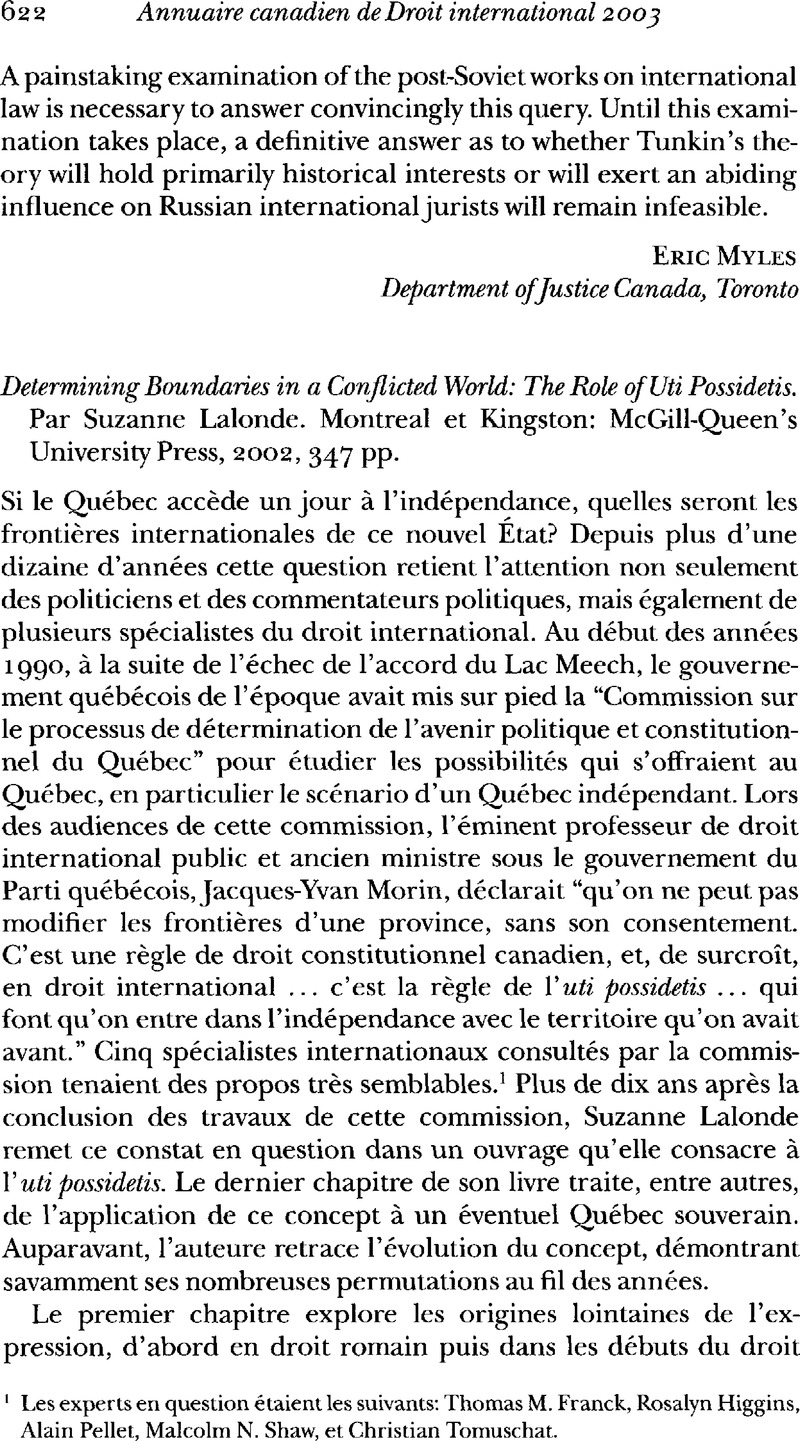No CrossRef data available.
Article contents
Determining Boundaries in a Conflicted World: The Role of Uti Possidetis. Par Suzanne Lalonde. Montreal et Kingston: McGill-Queen’s University Press, 2002, 347 pp.
Published online by Cambridge University Press: 09 March 2016
Abstract

- Type
- Book Reviews / Recensions de livres
- Information
- Canadian Yearbook of International Law/Annuaire canadien de droit international , Volume 41 , 2004 , pp. 622 - 635
- Copyright
- Copyright © The Canadian Council on International Law / Conseil Canadien de Droit International, representing the Board of Editors, Canadian Yearbook of International Law / Comité de Rédaction, Annuaire Canadien de Droit International 2004
References
1 Les experts en question étaient les suivants: Thomas M. Franck, Rosalyn Higgins, Alain Pellet, Malcolm N. Shaw, et Christian Tomuschat.
2 Comme le note Suzanne Lalonde, puisque les deux puissances coloniales, l’Espagne et le Portugal, avaient précédemment convenu de diviser entre elles l’en-semble du continent sud-américain, le choix des anciennes frontières coloniales comme frontières internationales signifiait que les nouveaux États renonçaient implicitement à recourir à la force pour l’acquisition de territoires.
3 L’auteure fait un argument semblable, aux pp. 124 et 125, lorsqu’elle discute de l’arbitrage frontalier entre Dubai et Sharjah.
4 D’ailleurs, au chapitre suivant, à la p. 170, Lalonde semble accepter cette proposition: “While pronouncements of the ICJ had undoubtedly endowed the uti possidetis principle with some normative status in international law, cases and state practice supported the conclusion that at its strongest, uti possidetis constituted a presumption in favour of the continuity of pre-independence borders.”




